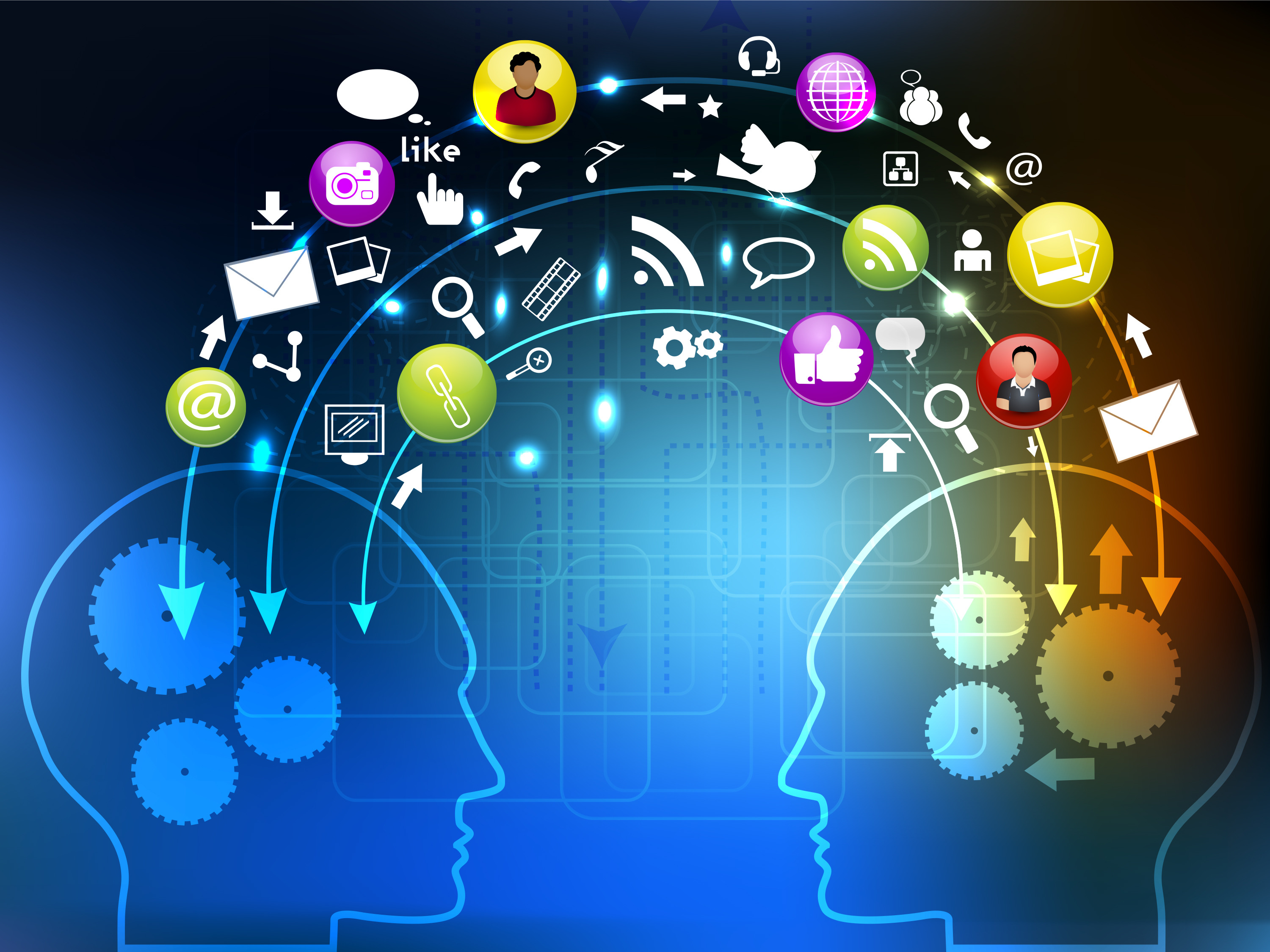NOTE: In the coming months I’m going to write about how we present ourselves online. Digital ID, as I call it, is the sum of:
- The services you use.
- The networks you join.
- The digital tools you depend on to show yourself and your work.
After two decades of doing business online, I’ve realized that we must know who we are offline to establish the strongest Digital ID. I’ll set out to prove that thesis in my articles.
We’re all learning how to maneuver this wonderful, liberating mess together! So I look forward to hearing this community’s opinions.
—
I like the image above because it’s how I feel when I wake up in the morning and put on my marketing cap and get on Facebook. I feel like I’m immersed in a pool of people, some of us connected, some of us not, some of us wanting to be connected, some of us not. And I think it’s important to recognize that mess. I think understanding how messy things are makes it easier to understand how we feel about establishing a digital ID. And, just as importantly, what we need to do to set up our own Digital ID.
What do I mean by that?
Here’s my best explanation: I’m a strong believer in the independent storyteller’s power. Not just the power of moving people to think and act and feel, but the power to find an audience on your own that you can tell your story to.
The Slow, Agonizing, Delightful Death of the Gatekeeper
For a long time, storytellers have been ruled by gatekeepers who got to tell us, “That story is good enough and worth this much. But that one sucks and good luck!”
Those days are coming to an end.
And how do I know this?
Because I was a gatekeeper.
I told some brilliant people that their stuff wouldn’t make it in today’s market. Sometimes I was right, sometimes wrong. But the powerful emotions I felt when I saw some of them move on and do great things were undeniable.
I wasn’t regretful.
I wasn’t envious.
I was inspired.
I saw them leveraging brand new tools, online services, ways of connecting that no one had thought of. They found their audience without Viacom, ESPN, AOL, Sony and all those other places where I worked.
Those gatekeepers were wrong.
I was wrong.
For my part, I had enough confidence in my own writing talent to strike out and try this new world on for size myself.
Now, the jury is still out on whether that was a good idea. While I’m doing great, I’m not making a living wage at writing my books. But I like the trajectory and I love the process. The freedom is exhilarating.
And it’s messy. Like this post’s image.
So what does this mean for working artists?
We’re living through a fundamental shift in how people learn about us and how we learn about them. As a writer looking for an audience I know in my heart that I’ll find my readers only if I stay true to myself.
To be clear, I find the incredibly detailed tracking of people by big companies creepy. I don’t trust them with the information. The counterpoint is that most of them are sharing that data with everyone. Some charge (like FB) and some don’t (like Google). Does that make it okay? I don’t know the answer to that.
I do know that I can go online and have a universe of data on my target audience at my fingertips. If I work hard, stay true to myself and my work, I can reach them and I can make a living telling my stories. The sacrifice I make is that my interests, preferences, friends and behavior is also thrown into this messy pool of data — slicing my identity into little pieces for another artist or writer or entrepreneur to scour through and evaluate.
[Tweet "I'm a data point for someone else. And they're mine."]
It’s a fascinating, liberating, terrifying time. And I’m delighted to be a part of the mess every single day.


Trackbacks/Pingbacks